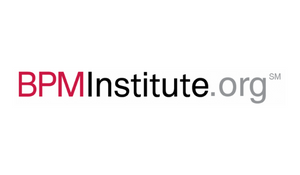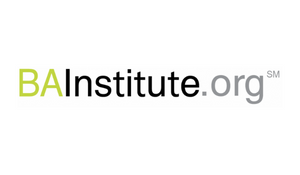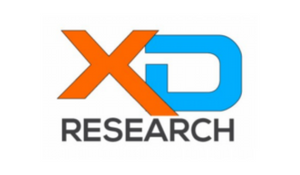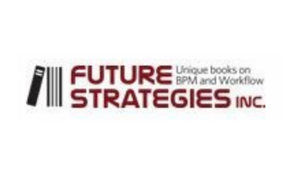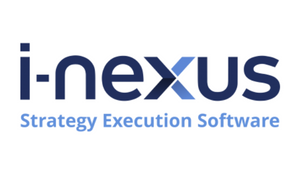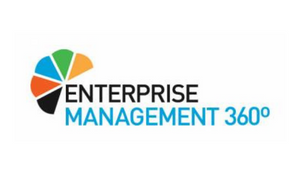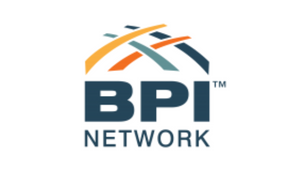
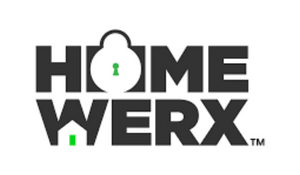
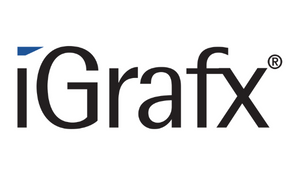
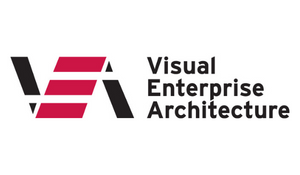
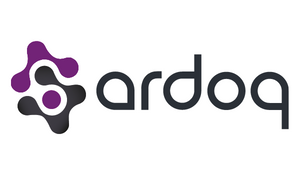
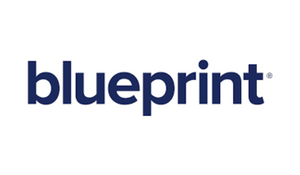
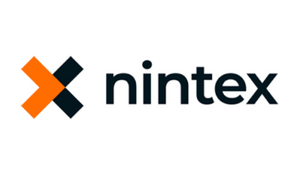
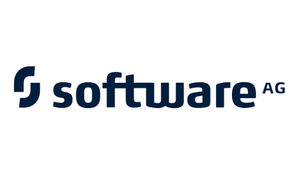
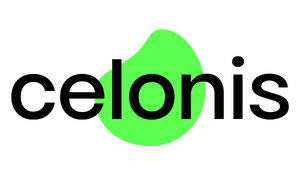
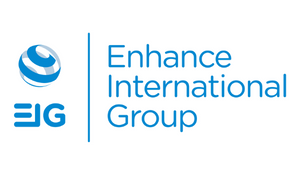
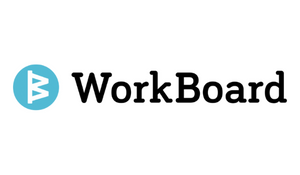
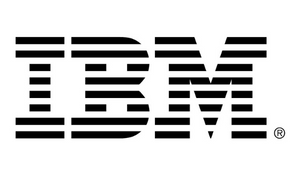
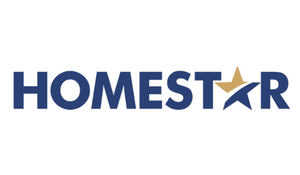
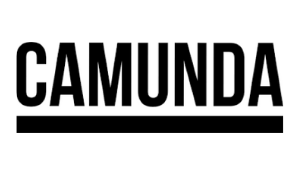
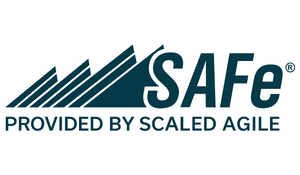
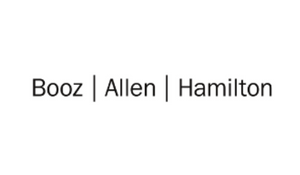
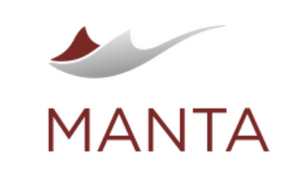
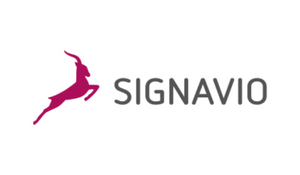
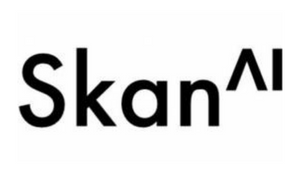
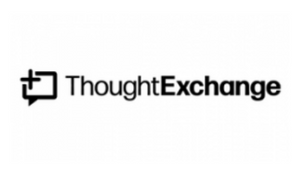
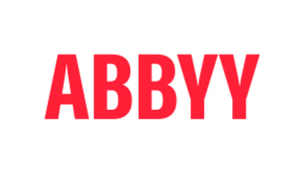
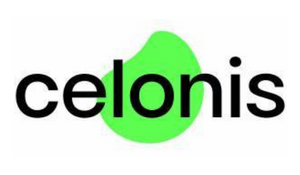
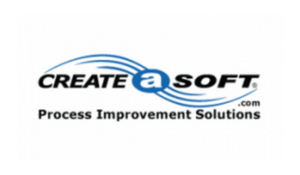
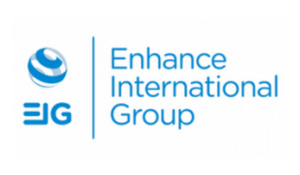
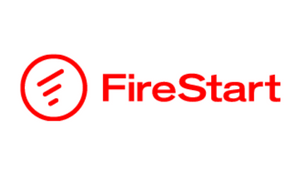
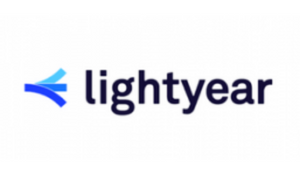
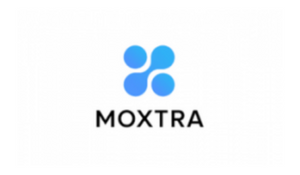
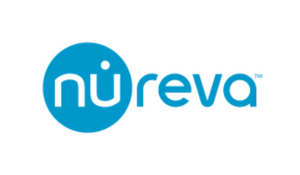
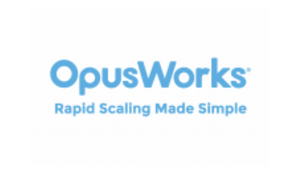
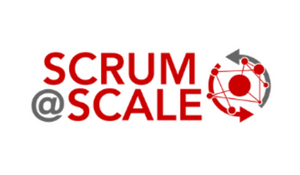
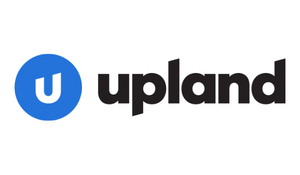
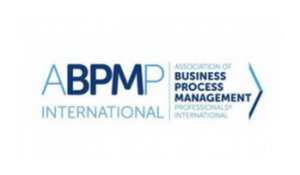
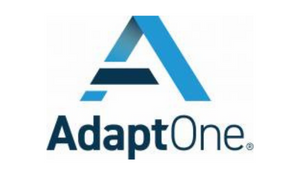
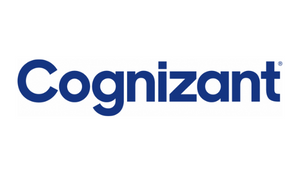
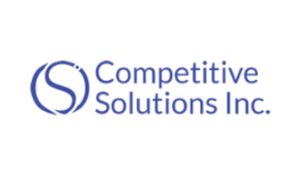
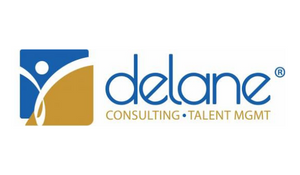

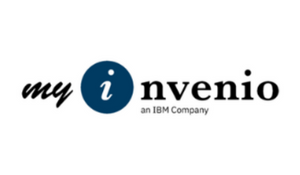
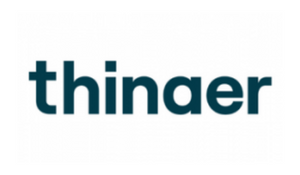
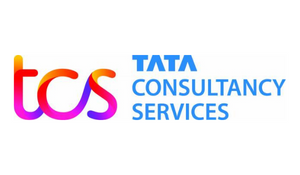
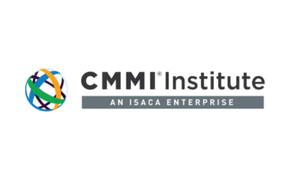
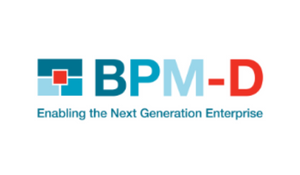
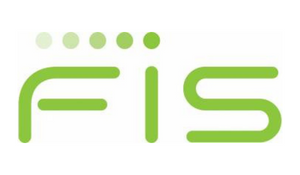
About the Presentation
Many companies have sound visions and strategies, and fail to execute where it matters most, at the customer contact point.
Dan Cockerell, former Disney executive and Magic Kingdom Vice-President, will share how Disney translates strategies to concrete expectations and behaviors for their cast members.
Topics Covered:
Culture is like the Weather
The weather is the environment that MotherNature influences and culture is the environment that leaders influence. If you want the best chance for success in your organization, focus on your culture. When your employees feel confident, respected, and valued, great things happen. Dan will talk about how he approached influencing the culture of the Magic Kingdom, and the 12,000 Cast Members that he led. -
I Am Inspired, Now What?
Passion, Dedication, Commitment are all powerful words. However, without specificbehaviors and specific actions, they are only words. Dan will share specific tactics and behaviors that he used to lead his team throughout his 26 year Disney career.
Lead Yourself First
Before you can lead your people or your organization, you need to learn how to lead yourself. This is counter-intuitive, but the reality is that in order to compete at the highest levels, you need to feel good, think clearly, and bring the energy that others will respond to. Dan will share his approach on how he prepared himself to effectively lead his Magic Kingdom team.
Dan Cockerell discusses his challenges and key tips in order to provide an excellent customer service after 26 years at Magic Kingdom Walt Disney World® Resort.
I would like to introduce a leader who is a master of creating an environment environments where great ideas and great people connect. He has been creating magic for over 26 years and over that career then has held various management and executive operational roles at Disneyland, Paris and the Walt Disney world resort both in theme parks and resort hotels. Before leaving Disney may of 2018 he started his own consulting company and his and he was the vice president of the magic kingdom park, leading 12,000 cast members and entertaining over 20 million guests annually in additional to his operational responsibilities. Then has been a keynote speaker for the world renowned Disney Institute for 18 years. He has addressed open roll-on participants as well as well as [inaudible] in customizing pro in customized programs including the USA bank, general motors, us department of state, the U S army, Porsche, and United airlines. Ladies and gentlemen, it is my pleasure to introduce Dan Cockerell.
So my dad always tells me I can do a speech and just show that video and say thank you and go home. And we'd be halfway there, but I'm not going to do that. So, um, I wanted to, I did spend 26 years with the Walt Disney company and I wanted to give you some insight into the learnings I had working there at Disney. We talk about an accountability matrix and accountability matrix says you need to get world-class results, but you need to do it in a world-class way. And it's easy to get results if you don't care about the people. And it's easy to be a great leader if you don't care about the results. But having to do both of those things is where the challenge lies. And I learned that over the 26 years at Disney, and I'm going to give you some insight into some of the magic that we created.
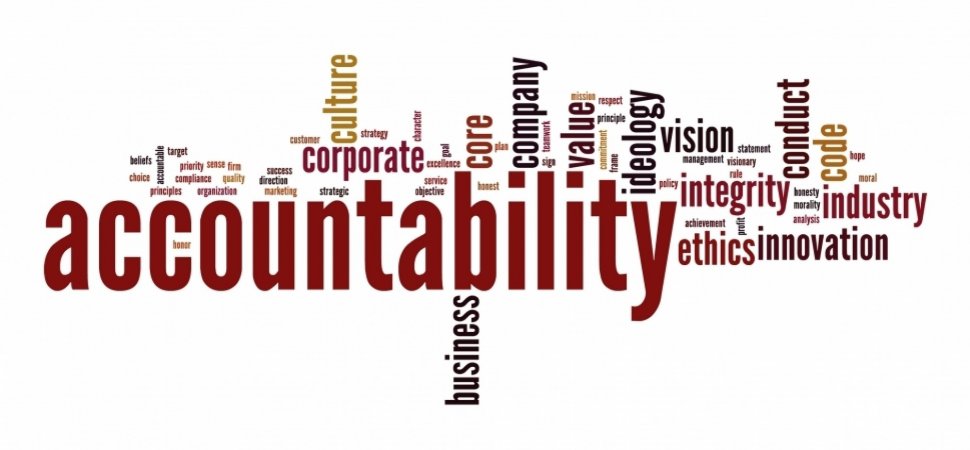 And some of the tough times we went through my wife, I'd get home some nights and, I would walk in the door and she could see that I had been beat up that day and she'd say, did you create magic today? I'd say, ah, yeah, I need a beer stack. And so, um, I think we all find that in this world today is there's some nights I drive home from work thinking there's never been a better vice president at Walt Disney world in the history of the whole company. And two days later I was driving home saying, if I have my job tomorrow, it's going to be a miracle. So things change really quickly on you. And I think this is, this is something I talk about in all my keynotes is it's never too late to get better. It's never too late to change. And I've been doing a lot of reading and a lot of thinking since I left Disney about 10 months ago.
And some of the tough times we went through my wife, I'd get home some nights and, I would walk in the door and she could see that I had been beat up that day and she'd say, did you create magic today? I'd say, ah, yeah, I need a beer stack. And so, um, I think we all find that in this world today is there's some nights I drive home from work thinking there's never been a better vice president at Walt Disney world in the history of the whole company. And two days later I was driving home saying, if I have my job tomorrow, it's going to be a miracle. So things change really quickly on you. And I think this is, this is something I talk about in all my keynotes is it's never too late to get better. It's never too late to change. And I've been doing a lot of reading and a lot of thinking since I left Disney about 10 months ago.
And this idea of a growth versus a fixed mindset is something I've really been thinking a lot about. And a fixed mindset says you have a certain amount of talent and a certain amount of skills and it's never going to grow from there. You're limited and you have to leverage everything you have. And a growth mindset says what you can learn is unlimited. You can, you can be whatever you want to be if you have enough discipline and you're able to keep learning. And they did a study with children and they were trying to determine how these children were wired and they'd give them puzzles and they'd give a, there's all kinds of different levels of puzzles. And so they'd give them a puzzle and some kids would put the puzzle together and then they'd take it apart and then they put it together again and they take it apart and put it together again.
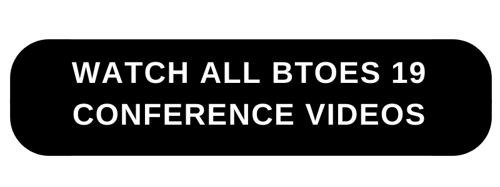 And then some kids would put the puzzle together one or two times, and then they would say, they'd look up and say, you know, do you have other puzzles? And they get a little harder puzzle. And they'd figure that puzzle out and they got a harder puzzle. And this was a great study into whether you have a fixed or growth mindset. So if you go every day and you keep doing the same thing because you're really good at it and you're not trying to try something new and you're not, you know, you're, you're afraid of failing, you're going to have a fixed mindset. It doesn't, it's not the end of the world, but you're going to miss out on a lot of great opportunities and a lot of great learning. And people with a growth mindset, they're not focused on being successful. They're focused on having successful behaviours that lead to that.
And then some kids would put the puzzle together one or two times, and then they would say, they'd look up and say, you know, do you have other puzzles? And they get a little harder puzzle. And they'd figure that puzzle out and they got a harder puzzle. And this was a great study into whether you have a fixed or growth mindset. So if you go every day and you keep doing the same thing because you're really good at it and you're not trying to try something new and you're not, you know, you're, you're afraid of failing, you're going to have a fixed mindset. It doesn't, it's not the end of the world, but you're going to miss out on a lot of great opportunities and a lot of great learning. And people with a growth mindset, they're not focused on being successful. They're focused on having successful behaviours that lead to that.
They'll go for the harder puzzle cause they want to learn the next level. They're willing to be vulnerable and have humility and open themselves up. And so that'll be a big thing that we're going to talk about today as we go through, so Walt Disney was a storyteller. You know, he started with making films. Eventually he wanted to create a three dimensional environment that he could bring his films to life. And he invented the theme park. And that's how Disneyland was invented. He used to sit in Griffith park in Los Angeles and watch his two daughters on the carousel and sit on the bench. And it was an amusement park. And he said, you know, there's gotta be a better way. There has to be a place that can be cleaner and safer and better for families to spend time and create memories together. And he came up with the concept of the theme park.
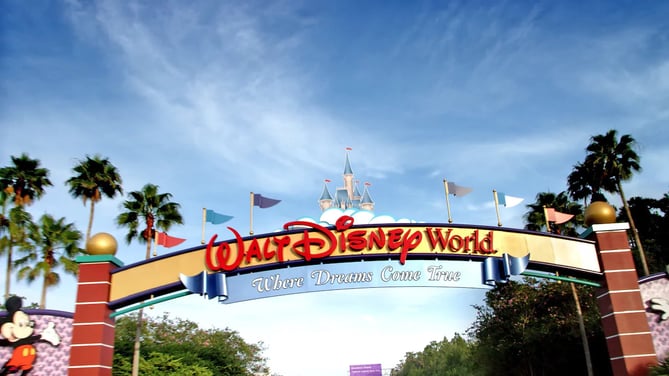
No one had ever thought of that. And he said, I want to bring people into these environments where they can escape reality and spend time together. And I think one of the reasons the Walt Disney company has done so good is today that's exactly what we teach our cast members. We still build environments and experiences that people can escape the real world and step into to create memories together. It's all about emotions and it takes a whole lot of operational excellence to pull it off, but as an emotional connection and it goes to the base of, how people experience each other and experience our product. And we've stayed at focused on that goal. So I want to tell you a story today, but it's more of a metaphor. It's not going to be about Disney, but I'm going to come back to Disney and I want to tell a little story about a place that my family, we visited a few years ago.
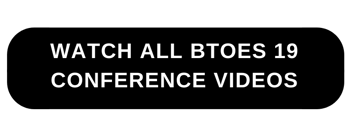 So this is in a Kyoto and it's called the Rio Angie garden Zen garden. And there's about 1600 Zen gardens and temples in Kyoto. And we were able to drag our kids to this one. Now, right after this, I took my boys to the Ninja theme park where they film films and we all got to do the a, the Ninja star throwing competition, which they remember really well. They don't remember this as much, but I do. So this garden, it's a, it's a dry garden and it was built. They don't, they're not sure who built it. It was maybe in six or 780 it's been there for hundreds of years, thousands of years, and it's been maintained. And no one knows the story behind it. No one knows why it was built. No one knows why the rocks are in the configuration they're in, but it exists and it's a very famous garden.
So this is in a Kyoto and it's called the Rio Angie garden Zen garden. And there's about 1600 Zen gardens and temples in Kyoto. And we were able to drag our kids to this one. Now, right after this, I took my boys to the Ninja theme park where they film films and we all got to do the a, the Ninja star throwing competition, which they remember really well. They don't remember this as much, but I do. So this garden, it's a, it's a dry garden and it was built. They don't, they're not sure who built it. It was maybe in six or 780 it's been there for hundreds of years, thousands of years, and it's been maintained. And no one knows the story behind it. No one knows why it was built. No one knows why the rocks are in the configuration they're in, but it exists and it's a very famous garden.
In fact, it's part of the UNESCO heritage association. So this the square garden, it's about 2,600 square feet. So for you Americans, it's 2,600 square feet. And for everyone else that's 241 square meters. I don't know why we didn't adopt that. I think we tried in the seventies one
day to do the metric system and we figured out it was too hard. So we went right back. So, um, and there's 15 stones and total that are organized into five groupings in this garden. And so people come, they stand on the platform and they, um, they go to meditate. And these, these gardens were invented for meditating because meditation allows you to settle your mind, create clarity, and create focus and entice you to do that. And that's what this garden is all about. To go there and think about things. So it creates an environment where you can think about things.
I think we need more Zen gardens in the world today because there is a lot of distractions and a lot of things going on. And so the first piece of this garden I want to talk about is the importance of focus and the important of clarity. And I think Josie and VJ were very astute in pointing out that the world today is not about making things more complex. We're really good at creating complexity. It's all about creating simplicity. And as leaders, if you can pull out of the chaos, simplicity and clear messages for people to be able to know what they're supposed to do every day, you're going to create an environment that's gonna allow people to work at a whole different level. My wife and I are working on a book right now and the working title of it is a, it's a, how is the weather in your kingdom?
The idea is that, the weather is like culture and cultures like the weather. And as aleader, you create the environment where the weather is tornadoes every day or looming hurricanes or blue skies and a nice warm breeze and you know, and you've worked for people or maybe you're one of the people that causes these, these unforeseen weather patterns that go through your office. And so environmentally, creating an environment for everyone to be able to work in is the most important thing. So I want to give you some examples of this that we've used at Disney. Every day our cast members get up there, 74,000 cast members, Oracle, all Disney world, and they get up to come into work and some of them are empty trash cans. Some of them are vice presidents, some of them work on third shift, some of them paint, some of bus drivers, some are zoologists, some are industrial engineers.
You name the job description and we have it. We have data scientists, we have a, I mean you name it, we have work in there and they get up every day and they have a job. They have a role to do. They have to come in and complete their role because every, all 74,000 people have to complete their role to be able to make that big place work and move the millions of guests around and feed them and entertain them and keep them safe. And it's really easy when you get up every morning to forget what your purpose is. We all know what our job is every day we have a checklist of all the things we have to get done, but we forget about why we're doing what we do. And at Disney, you know we have a mission and we have a vision just like every other company.
And I can't tell you what exactly what it is. I know it's something about being the most admired company in the world and we want digital technology and content and something else. Cause that doesn't drive you to get up in the morning and come in your your mission and your vision. We have something we call our common purpose. And every cast members taught their common purpose on the first day they walk into Disney university and they get trained in traditions. We tell them the story of Walt Disney. We tell him why he created the theme parks. Going back to 1955 with the first theme, park was open. And we tell them your role is all different. Your purpose is to make sure every single guest has the best vacation they ever had in their life. That's your purpose. And so we always talk about empowerment. How do I get people to make decisions and not have to call their manager and take risks?
Click here to get access to all BTOES19 conference video presentations
And I can't tell you what exactly what it is. I know it's something about being the most admired company in the world and we want digital technology and content and something else because that doesn't drive you to get up in the morning and come in your your mission and your vision. We have something we call our common purpose.
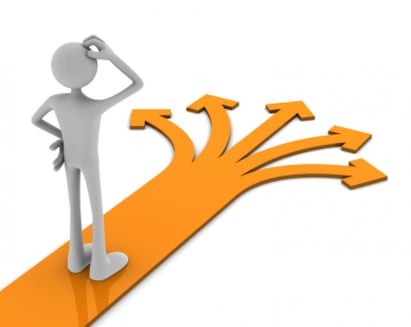
And every cast members taught their common purpose on the first day they walk into Disney university and they get trained in traditions. We tell them the story of Walt Disney. We tell him why he created the theme parks. Going back to 1955 with the first theme, park was open. And we tell them your role is all different. Your purpose is to make sure every single guest has the best vacation they ever had in their life. That's your purpose. And so we always talk about empowerment. How do I get people to make decisions and not have to call their manager and take risks?
If you can drive your common purpose to that, you start aligning everybody and everyone starts to understand why we're doing this. So the person who's out on the street sweeping the trash, they're going to continue to do that really well and they're going to make eye contact and they're going to be friendly. But when you say your job as a custodial cast member is to make sure every guest has the best vacation they ever had. You know what happens? They start to come up with water art and they fill up their pan with water and they get, their broom. They learn how to paint Mickey mouse or Donald duck or Goofy on the sidewalk in water. Now, of course in Florida in the summer, it lasts for about four minutes before it evaporates. But where else are you going to have a custodial person do water art for you?
And if you go on a bus and the bus driver safety's number one, he has to get from point a to point B safely and efficiently. But you know what, why is going, he's going to do trivia with you and maybe he's going to sing a song on the bus and he's going to ask how your day was and he's going to make sure as a bus driver that you have the best vacation you ever had. And so my job, one of my main jobs as vice president at park, 50% of the time, my job was to walk around and remind people every single day why we existed and what they were doing today to make sure guests had the best vacation ever had. And the other 50% of my job was to get the heck out of the way and let people do their job.
I think as leaders we get caught up in, we get really important and we have our titles and we have our nice office. And when I left, Disney World, May 11th, it was a miracle. The next day the park opened. I don't know how it happened. They did it without me. So this, it takes, it takes a group and it takes people to understand that. And when people understand their purpose, they're going to find solutions. They're going to find new ways to do things. They're going to push the thinking and they're going to be motivated. And what I found that while Disney world is a lot of our cast members work is their Haven work is a place where there's order and they're respected and they're recognized and they know what their job is to do. And home is the place that's stressful for them.
And so we can create an environment for them when they come in and work hard every day. It's a really hard job. You're out selling ice cream everyday on that cart and it's a 120 degrees with the humidity. And you know, I remember walking around the park and walking up to people and this is, this is that empathy thing. Hey, uh, and they had this big line, Hey, uh, how you doing today? And you know that college program cast members thinking, okay, I don't know who you are. You're wearing some sort of professional attire and they're thinking, how do you think I'm doing? It's 120 degrees. I've got all these people online. How about you start pulling some ice cream out and start serving some ice cream up? And so this idea that you gotta be focused on people, cause that's the moment of truth. They, the, the guests that interacts with that cast member during the water art, that cast member that talks to the bus driver, that cast member who talks to the front desk and, and gets checked in.
Click here to get access to all BTOES19 conference video presentations
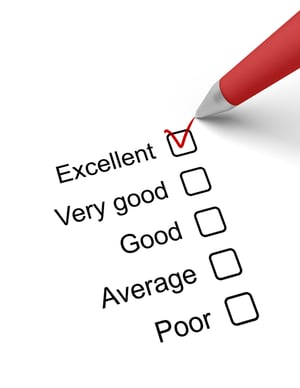 I was talking to a lady yesterday who staying out at Disney and we were talking about this and I said, , has your stay been? And she said, you know, it's good, the rooms cleaned. But she said, you know what, I was out in one of the resorts and I didn't know where the lobby was. And I went up to a housekeeper and I asked her where the, if she could direct me to the lobby. So this housekeeper had a lot of options. One would be, I don't speak English very well, so I you need to ask somebody else. Another one was that way. And another one was, come with me. Let me show you. And walking down the hallway and stopping at the end and saying, go down these stairs. And the lobby's right over there. That's the difference between very good and excellent.
I was talking to a lady yesterday who staying out at Disney and we were talking about this and I said, , has your stay been? And she said, you know, it's good, the rooms cleaned. But she said, you know what, I was out in one of the resorts and I didn't know where the lobby was. And I went up to a housekeeper and I asked her where the, if she could direct me to the lobby. So this housekeeper had a lot of options. One would be, I don't speak English very well, so I you need to ask somebody else. Another one was that way. And another one was, come with me. Let me show you. And walking down the hallway and stopping at the end and saying, go down these stairs. And the lobby's right over there. That's the difference between very good and excellent.
And that differentiates it. And that is what separates good companies from great companies is that little difference in every one of your employees is going to make the little extra discretionary effort. They're going to go above and beyond to take care of people. The solutions they're going to find that aren't Potter part of their role or job responsibility. Because your job responsibility is not number one. It is your purpose. That's number one. And so it takes a ton of communication and you'll say it a thousand times and it's kind of like raising kids. You'll say it a thousand times and someday someone will start doing it. You'll say they were listening, they were listening to me. Um, and so that's, you know, you need to inspire people when people say, well, how do you inspire people? Remind them what business you're in. Why is it important that the products and the services you're providing is enabling people to have careers and have lives?
And what service are you providing to them? And when you remind them of that, it's inspirational and they'll make that difference. Another point of clarity. So we'll to go back to the rock garden, the four keys, once we know our common purpose, we call them our four quality standards at Walt Disney world. And every cast member, once again on day one at Disney university gets trained on the four quality standards. And the great thing about this is the quality standards go for our CEO, all our presidents of our organizations, all the executives, the general managers, the operations managers, the frontline managers, the falling cast members all have the same four quality standards when they make decisions. And that creates alignment. And what do you think are number one, the most? Number one quality standards. What's, what's the most important thing? Safety. Alright, those are my plants in the audience.
They know safety. And the funny thing is when you talk to a guest and you say, we're doing some research about your next vacation, what's the most important thing to you? You know what? They don't tell us safety. They just assume it's going to be safe because that's our brand and they don't even think of it. And when I worked at Disney in Paris, we had these long moving sidewalks and when people don't think about safety, you better think about it for them because you wouldn't believe how many times the fireworks were going and people on the moving sidewalk and just start falling over like dominoes. You know, people just forget about gravity. They forget about their kids. I was talking yesterday and knew George and I were talking, we were talking about lost children. She said, how many kids get lost every year?
Well Disney World, I said, whatever you guess is going to be too low and I don't care how high your number is. And it's at the magic kingdom. A good solid summer day was like 130 kids. Although we, although we call them lost parents, we turned it on. So when the parents came up we said, Hey, your parents are lost, but we found them and now you can reunite each other. So safety's number one. Every decision we make, every story we tell is about safety first. You never put safety in the way of anything else. So when we're designing an attraction and we try to decide how fast we're going to dispatch the rollercoaster out of the station, we don't take the fastest person who boards or the slowest person. We try to find the average person because if you rush people to get in and out of these rollercoasters, they're going to hurt themselves.
And our bus drivers are coached very well on paying attention, although they can interact with people. Bus safety's incredibly important. When I worked in resorts, you walk up to lifeguard at Walt Disney world, you walk up and start talking. They will not make eye contact with you because they have to watch their water. And that's the number one thing. When you have a 150 pools in a place, you're watched the water and safety is number one. And we tell stories around it. There was a story when we opened the sports complex, the night before, we're going to put up the big sign with the sponsor for the new field house and the, um, the construction manager, there was some breezes that were going above what was safe for the crane to go up. And so he called the vice president of the sports complex and woke them up in the middle of the night.
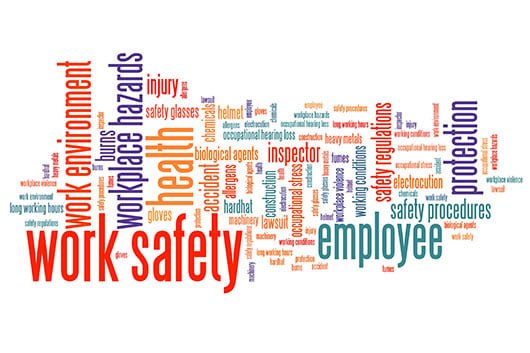
So first of all, he knew enough that it was okay to wake that guy up in the middle of the night to talk about this issue. So he's already set a great expectation and he said, uh, we're going to put it up, but I'm, I'm kinda nervous. The breeze is kicking up and it goes beyond. It's right on the edge. What do you want to do? And you know, the, the, the sponsor was coming the next day to do the ribbon cutting. All the media was going to be there. So this was not going to be a good situation if their name was not on that building and the vice president said, you don't put it up, we'll deal with the executives will recover the situation because he knew he could not live with himself if he said go ahead and something happened. It just wasn't, that's not how you make decisions.
And so they did a postmortem and said, you know what the solution was, don't wait to the night before to put the signup. So that's what we figured out. But that somehow we get in those situations. Courtesies. Second, be nice to people. Now you're safe. Greet them, make eye contact. And that was one of my things that magic came out of all the things I did. I said if every cast member can make eye contact as guests walk by and just acknowledge them, we're done. We'll be done. Because once you acknowledge someone, you're opening the door to ask questions and get help and engage and interact and just doing that as difficult. And wherever I go now, I'm always looking, are people greeting? Are they making eye contact? Are they paying attention? Are they proactive in anticipating your needs? Number three is show. We call it the show.
The show is the environment we create. The show in here is all the light bulbs are on and the sound works and the screens worked fine and everyone's got their name tag on and everyone has the right colour shoes and the right music's playing.

And when you get on buzz Lightyear, buzz Lightyear attraction, they don't say howdy partner. They say have a great trip space ranger. And what do you think they say when you go to frontier land? How do you partner? Cause that's what Cowboys say and everything's a theme language and we're putting, we're taking you to this world. And number four is efficiency. And I'll tell you, efficiency is always trying to fight its way up to the top. And it always, because when you're entertaining 20 million guests in a theme park, over 50 million guests in that resort, everyone wants to go fast and we have to train people.
You know what? If you run out of a product, you don't run to go get it because safety is more important than efficiency and we're willing to sacrifice the efficiency in the courtesy so you don't fall down. Now we're going to go back to root cause. Why did we run out of that product? But people in that moment have to make decisions. Once again, this is such a great way to empower people. They can start making decisions because when a cast member who's selling a product or operating in attraction or working at as a lifeguard, they know what decision the vice president of the park would have made because they're using the same criteria. There is no secret executive handbook that says we make decisions differently. They use the four keys. So I would encourage you, what is your common purpose and what are, what's the matrix?
What is, what are the criteria that your people make their decisions in what order? And when you start getting that clear from them, once again, everyone starts getting aligned and they make decisions very similarly. And that's what people love about Walt Disney world. It's what they love about Starbucks. It's what they love about McDonald's. You get a consistent experience, you know what you're going to get. And I think people, and I think you all understand this, I think people underestimate how great and how valuable and how difficult creating consistency is. And I'm working with companies now that are putting standards in place and they see how hard it is because it's creating a culture where people understand what your messages. One other I want to talk about with clarity. So once again, we're gonna go back to our garden. There's four guests needs, our guests have told us there's four things that need to happen for them to rate their vacation.
Excellent. And when they rate their vacation, excellent. Their intent to return goes from, I probably will come back to, I definitely will go back, come back. And I think the finance team at one point did a study on intent to return. And I think at Walt Disney world, one percentage point improvement in X and intent to return in the, in the top category was worth about $300 million to the Walt Disney world. Because of our volume. You don't have to advertise cause you're coming back because we gave you a reason to come back. It's word of mouth. We have an emotional connection with you and you're going to go talk to a whole bunch of people about how great this place is and it's gonna create all this value. And so excellence is always the thing we're focusing on. So we did focus groups and research and we spent millions of dollars on it.
And like most research when we were done, we said that's what we learned. We spent a millions of dollars for that. But once you hear it, you know it's okay, it's verified. Now we know that's it. Our guests told us, I'll tell you what, they didn't tell us, they didn't tell us. We want you to have great attractions and they didn't tell us they want to have great fireworks and they didn't say, we want you to have new technology. And they didn't say, we want you to have really nice hotels. They just assume that's all going to happen. Once again, because that's our brand. When I go on Amazon, I don't think to myself, I hope the site is up today. You know I've never thought that because I just know it's going to be there. It's always available.
I've never had to go down. I don't know how they do it because after being at Walt Disney world and putting this kind of thing in place, I realize that 99.99% availability of a system is really low when you're dealing with that much volume, but the guests say they just assumed all that was going to happen.
There's four things. Once again, take your garden simplicity. What are those four things your guests want? Number one, make me feel special. When I come to Walt Disney world, I want you to make me feel special. There's millions and millions of people. I want you to pick me out of the crowd, make my child feel special and make me feel special. So we spend lots of time
talking to our cast members. How do you make every guest feel special? You comment on their baseball hat, you give them a celebration button and then they walk around that are walking advertisement, make me feel special. It's my birthday. Make me feel special. It's my wedding anniversary. And then we had the great button, I'm celebrating blank and well this is where you can celebrate whatever you want. I'm celebrating celebrating. That's we have some people do and we make a big deal out of that.
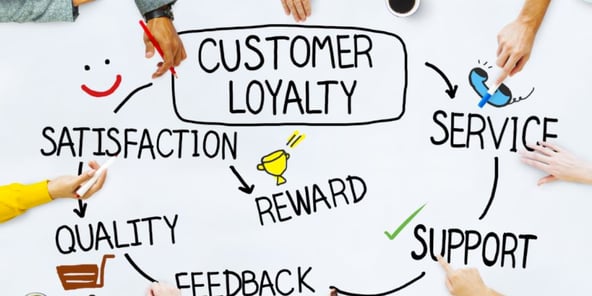
Click here to get access to all BTOES19 conference video presentations
We have birthday parties. We're always looking for how do we make you feel special and go out of the way. And some cast members will say, well, if I make that person feel special, what about all the other people say don't worry there. 74,000 of us, someone else is going to take care of that guest. You take care of this one, I'll take care of that one. You take care of that one. And if they can go home with a couple of stories of a moment they had, that's gonna be the differentiator between very good and excellent. And they write us letters. They don't write us letters about how great their rollercoasters are and they don't write us letters about all the service and they don't write us. They talk about the interactions they had with cast members. That makes a difference. And, and now that I'm doing speeches, I find that message all the time.
When you're at Walt Disney world, I remember I was a little kid and I got off the Speedway and they gave me my own driver's license and I still have it in my scrapbook at home. And that was 40 years ago. They remember that. They didn't remember all of the sudden they remembered they got the driver's license and that was the differentiator. And so it's funny, I walk around the park sometimes we spend hundreds of millions of dollars to build these attractions and kids will like chase a duck around for an hour. Like they think that's the coolest thing over. So human nature, don't underestimate what people like. Number two, treat me as an individual. Once again, treat me as an individual. When I call, I have to call every once in awhile I have to call my credit card company or something. I go through the phone tree and I go around and after I put all my information in and my card number and my birthday, my social security number I get on, they say hi, who is this?
Like how could you not know who this is? I just spent the past 30 minutes punching in all the numbers. What's your credit card number? I'm like, all right. Someone who works here has never called their company and to try to interact with them, treat me as an individual, make sure you understand what my issue is. And so when a guest walks up to you and says, frantically, I just lost my two year old, don't say, Hey, don't worry. We always find them you, you ramp up, you ramp up and you have the same level of urgency that that mother has and you walk quickly, you don't run. You walk quickly to lost children and you tell them you're gonna make calls and you're going to make it happen to get their kid back. Because if you don't have that sense of urgency, they may assault you because the mom don't get in between a mom and the Cub.
Right. So how do you get to treat individuals, once again, we're not a concierge hotel. We're not a little, we're entertaining millions of guests, but we want us to treat everyone individually and every cast member has to be creative in how they do that. And they have to find different ways to do that. And technology is now helping us do that. And so we want to incorporate technology along the way. So when you walk into the hotel and check in and you stayed there 50 times, we don't say, Hey is your first trip. That's not treating people as an individual and are,
we're not a concierge hotel. So our cast members can't remember everyone. There's some hotels, they have a picture of you before you go in and they know your name. It's great. We can't, we don't have that capability yet. A Walt Disney world.
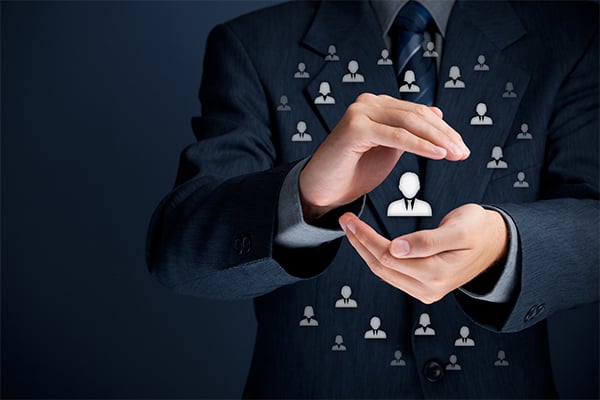
But we had magic bands and we can talk about that later. But, um, it emits a signal so we know where you are. We know what's going on. People say, what about privacy? We said, look, we just want you to have a great vacation. That's all we want to know about. We want to know that you're going to run into Mickey mouse. That's what we want to know about your privacy. But this individual piece is really important. So when you work in a place that business that big, how do you make sure that individual, number three, respect me, respect me when I call and I have a problem, don't get me an attitude. Respect who I am. If I have a, an accent and I know I speak a different language, don't give me a hard time about that or say I don't understand you.
I lived in France for five years. I was not understood most of the time and I know what that's like and it's not fun. Respect me for I am. I'm paying you a lot of money to come to Walt Disney world. Respect me. I, we had a situation at one of the hotels, customer came back and said, well, the grand Floridian, this guest came and they said they got a charge for $200 for the flying fish restaurant on their room. But they said they didn't eat there last night. They said they were at the magic kingdom. So what do you think? And I was like, so we pulled up their folio. I said, well, I'm not sure what I think, but I've know that they spent $15,000 in our hotel. So how about we give them a $200 discount? And I don't care if they're lying, just give it back to them.
Don't ask someone who said, I didn't need, they're just assume they're telling the truth because we're going to, by the time this conversation's over, we've already lost $200 just spending time talking about this. And sometimes we get so focused on the anomalies and the exceptions, we make rules for those exceptions. And it's a, it's we, we, we do shouldn't do that. And one of the things we have at the Walt is what we call it. No strings attached. All the coordinators and frontline cast have a coupon and they can fill it out for up to $50 for anything for any reason. And when we first started doing it, of course your visor and insurance said, well hold on now if all the cast members start filling these out and give it to their friends and give it to their cousins and give it to their brothers and sisters, we're going to lose all this money.
And I said, well first of all, we make a lot of money. You're never going to have enough coupons to make it dent in how much they could give away. And by the way, our cast members are much more conservative with our resources and we are, they want to follow the rules. And when you get that one person who's going to hand it out to their cousins for awhile, the anomaly will pop up. We'll deal with that. But why would you not empower 74,000 people when you're worried about a hundred people? And so don't let the exception be the reason you're making your policy. Assume people are good, trust and verify, right? We're always taught to trust and verify. I'm going to let you go and then we're going to verify. I know a lot of companies now are going to, you have a corporate card, you go use it responsibly and you don't have to fill out any expense report.
We'll just pay your bill and every once in a while we'll check to make sure that you actually had to go to Hawaii on business. You know? And we'll see. But we just, we put so many, so many systems in place because we don't trust people, we don't respect them for who they are. And we ended up spending a lot more money anyway. So make me feel special treatment as an individual. Respect me. Last one, be knowledgeable. If I want to know what time the fireworks are and I've saved up for five years, don't tell me they're at nine. If they're at 10 and don't worse, don't tell me they're at 10 if they're at nine. No, what you're talking about. Have the information and don't guess. And if you, if any of you go to one of the theme parks, every cast member in their pocket should have something called the telecast.
This is old school technology. It's a piece of paper. It's about this long and it folds up into like nine sections and it's like a magic trick. They pull it out and you say, Hey, what time does the blizzard beach waterpark close today? There'll be like, let me see, let me get that for you. Or I want to hear the goofy birthday line call. Do you have that? Yes, I have it right here. They have all this, they have 99% of information you're ever going to ask them on a piece of paper. We played with apps and we said, we're going to give everyone a device and we're in. Someone said, why don't we just get a big piece of paper and fold it and you can put in your pocket? We said, that's brilliant and that's what we do. So because here's the problem, our most, a lot of our guests, they know way more about Walt Disney world than we do.
 I mean I would basically, when I wanted to find out what was where chip paint was in the park or where something was broken or a tree was needed to be replaced, I just went on social media and there's people that would show up everyday annual pass holders and take pictures of stuff that wasn't right and I just send the pictures to my engineering general manager and say, Hey, can you take care of this? He'd say, where you at in the park walking? I said, no, our guests are doing this for us. They have a whole inspection process in place, so know what's going on and be knowledgeable and and deliver that because it's, it's the worst thing. You get the wrong information and it causes mistrust and it deals with consistency. The one other thing I want to talk about cause that, so you put that in your garden.
I mean I would basically, when I wanted to find out what was where chip paint was in the park or where something was broken or a tree was needed to be replaced, I just went on social media and there's people that would show up everyday annual pass holders and take pictures of stuff that wasn't right and I just send the pictures to my engineering general manager and say, Hey, can you take care of this? He'd say, where you at in the park walking? I said, no, our guests are doing this for us. They have a whole inspection process in place, so know what's going on and be knowledgeable and and deliver that because it's, it's the worst thing. You get the wrong information and it causes mistrust and it deals with consistency. The one other thing I want to talk about cause that, so you put that in your garden.
The four guest's needs, the last piece, guess what our cast members want when we researched it and spent millions of dollars in our focus groups, they want the same thing the guests want. Make me feel special treatment as an individual. Respect me and make me knowledgeable. It's the same thing. So once again, this idea as leaders, you create the environment, you give your employees the tools, you give them the clarity to do their jobs, then they go deliver that to your guests. And I used to talk to people when I walked around magic kingdom, I was not looking to interact with guests. I'd answer questions and make eye contact and role model when I was out there. But I was looking to talk to cast members because as the vice president I could talk to a couple, a hundred guests or I could talk to a couple hundred cast members who are going to talk to a couple of hundred guests.
So you need to know where you fall in that leadership chain. And so I would just, I'm thinking about creating a template with the Zen garden and giving it to people saying, just fill in what's important to you and fill that in. The last thing I'll say for myself is I've come up with my little Zen garden for myself. I have three priorities in my life and I bucket those. And that's how I think about where I spend my time every day. What do you think my number one priority is? Of course, how could it not be family if I didn't say family, I'd be selfish and self indulgent and it's not family families. Number two. Number one is me and I compare like when you go on a plane and when the oxygen mask drops, you put it on yourself first because if you don't take care of yourself, the little kid, the elderly person who can't put it on now, they're in trouble.
The duty managers in the park, when there's an emergency, the duty manager has to go in the opposite direction of the issue and manage this situation remotely because if something happens to them now, no one's managing that situation. So I tell people, figure out what it is to take care of yourself. There's diet, their sleep, there's exercise, there's mindset, there's hydration, there's your emotional intelligence, meditation, it gets you grounded and centered to be the best person you can be because once you do that, you'll be great with your family and you'll be great. Doing your job. And we always have been taught to sacrifice ourselves. I heard Arianna Huffington speak and she has that really great accent. She said, Oh, I was talking to a man and he, he was bragging, he only got four hours of sleep. And I'd said to him, that's why this conversation is so boring.
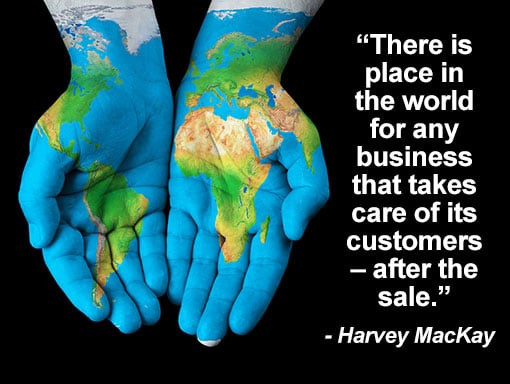
You got to take care of yourself. Second for me is family and family is not about, you know, there's some romance, most of it's empty. The dishwasher take out the trash. And when your daughter texts you respond so you can get her the $20 she needs for her Uber ride. That's what family is about. And you take care of that. Are you connecting? Are you, is that a priority? And third is career. So just I would be clear in your mind what is important to you. And once you know it's important to you, are you putting resources and time and thought towards those things? And if you do that, there's a bunch of stuff you're not gonna you're going to get to. Not do. But you can only do so many things. And I talked to leaders all the time, I can't do everything. And I said, well then take the stuff that's not important and take it off. They said it's all important. I said, well, take the least important things in a, cut those off. And if you can't figure that out, then start delegating. Start you gotta figure out a way could you just can't do everything. And the more you try to chase it, the more you get burnt out, the more you can't think. And as a leader, if you're not cool, calm and collected and creating that environment, everyone's going to suffer your organization that your main job.
So just as I'd like to leave this with you, clarity ignites performance in my opinion. The next part of this I want to talk about is there's something I didn't mention about the Zen garden. That's really interesting. When you stand anywhere in front of it, wherever you're standing, you can only see 14 of the 15 stones. You can never see all 15 and they, I don't know who came up with that. I doubt it was done by mistake. It sounds mathematical to me, but they, you can never see all 15 and for me, this is one of those things. We talk about our blind spots, and if you've never, some of you may be psychology fans. You have the Johari window. The Johari window says there's things I know about myself and I don't know about myself. And there's things that you know about me and you don't know about me.
So what you know about me and I don't know about myself, is the blind spot. It's people who have self-awareness. It's the person in the restaurant who always talks so loud that's their blind spot. It's when my wife asks me a question in a very empathetic way, and I say, Oh huh, that's a blind spot. I should have been more focused in that moment. And we all have blind spots. And so this idea that the interesting thing of this garden is now your, where you're standing, you're only seeing 14 there's always a 15th stone. You can't see, no matter how smart you are, no matter how much experience you have, no matter how many languages you speak or how many PhDs you have, you can only see 14 stones. So if you don't know the stone is there, you can't ask the question about what it is.
THE JOHARI WINDOW
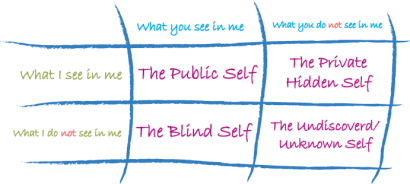
He can't even see it. And so people say, well what's the question? What's the answer? You say, well you can't get the answer if you don't even know what the question is. So you need to go back and always know you have a blind spot. There's always something you don't see. And that's why you need to surround yourself with other people that have different experiences and look at things differently and will come at you. And when the in a lot of times they'll make a comment and you won't understand what they're saying. I don't, what are you getting at? And when you have those kinds of people on your team, when they make a comment or they have a suggestion and you're not even sure what they mean, you have the right people on your team cause they're seeing something that's totally different to you.
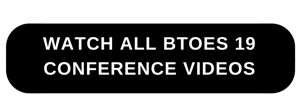
The other thing I've learned about these stones is, and I've been in these meetings, alright, does everyone see all 14 stones? Yup. I see them. I see them, I see them. We never figured out. We're all seeing the different 14 so I started talking about the stone. You see, you're like, it doesn't look like that to me. What are you talking about? Well, can't you see it? It's right there. Well what I gotta do, I gotta get up and go to where you are and get your point of view. And now, Oh, I didn't see that stone. Come check out my stone and we'd go back. And so this idea and um, we're Josie was talking earlier, you've to be able to change your point of view. You have to disengage with your opinion and your point of view and shift to another place and allow your team to do that.
And when we did projects with my staff meetings, we'd have a moment where I'd say, okay, I just presented an idea for the next 10 minutes. I want you to be as negative and critical of my idea as you can be. And everyone, if you can't come up with a reason, this isn't going to work, you don't win the game. And everyone could get negative. And tell me how bad the idea was. What if this happens? What if that happens? And we got out, we figured out all the things that were going to go wrong. And then that made it a successful. When we put in, um, our, um, my magic plus system, billion dollar project, Wi-Fi technology, I mean, just put it all in. I was an operations. We talked the it team. Okay, so when the system goes down, how are we going to operate?
And they said, well, we haven't seen that. The architecture of the system, it's got back doors. And if this goes down, it'll come around this way and it'll key stay up. We said, okay, that's great, but when it goes down, how are we going to operate? And they said, no you don't understand. I said, no, I understand. No one said that all the New York city could lose all its power, but it's happened twice in like you know, 50 years. Now it may not happen to her, my 50 but if it does, I want to be ready. And so we designed it that way and we designed it that we had backup systems and we have a fun thing. If you've used fast pass it, it's you turn green. Green means you can come in and blue means there's a problem and you have to wait.
We have a great thing, it's just called auto green. We flip. If the system goes down, we flip the switch on, it turns green for everyone. So our guests never even know it didn't work. And you know, some people get in, cause I guess they're really risky. They tried it anyway but they went in. So sometimes the solutions are very simple. But once again, you don't see all 15 stones. And I don't care how much you read, how much you look at things, someone is going to have a point of view and an experience that you don't have. And you've got to know that in a leadership role because if you don't face that fact, you're gonna miss some really important ideas. Number three is, um, all these stones are different. I have a quote here I want to know. Let me see.
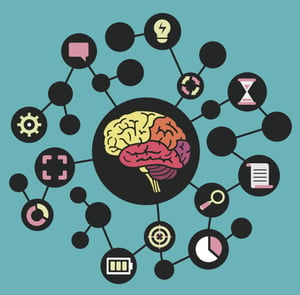
'So live as you were to die tomorrow and learn as if you were to live forever.' - Mahatma Gandhi. So this idea you're learning every single day, there's always something else to know. You will never be done. Learning and knowing, put people around you that know more than you do. And the last piece, these stones are all different. They're different textures, they're different sizes. Some of them lean up against each other, they're all very different and no one knows why, but it's a UNESCO world site. It's beautiful and there's some Moss growing on them, but they are all different. And you have to value that. And I've seen it happen over and over again. Living in France, talk about a roller coaster ride, going to another culture and it's the whole cycle you all go through for people have lived in other countries. The first six months is a honeymoon and this is great.
I love being here. It's really interesting. Then it gets into why did they do that? That doesn't make any sense. And then it goes into the whole country of France should change cause I don't like the fact that store closed at noon. Why don't they do it like America? And then you get to a point where you either accept it or you leave or you start changing and that's where the change starts to happen in nature. You know the elephants, we have a, I'm a really good friends with Dr Mark penning. He's the vice president of animal programs at Walt Disney world and he's from South Africa and he knows more about animals. When we picked our rescue dog, we took him with us. That's what we do at Disney. We bring in world-class zoologists to pick out our dog at the, at the kennel. And he's taught me a lot about that.
He said, you know elephants, they leave once they mate and have the calves, they leave the troop and they'd go, they'd go on and find other female elephants. I'm like, that sounds like a pretty good life. But there's a reason for it. Diversity. Cause they may again with the, their, their sons and daughters, bad things happen, right? They have to go out. And when you have diversity and you bring that diversity together, you get stronger and you get better. Nature knows it. But somehow we interview people and we get, we fall into this trap of hiring people that sound like us, look like us. We feel comfortable with, I mean I remember being interviewed at Walt Disney world 10 years ago. We interviewed some managers that are going to be housekeeping and we actually, after the interviews we'd make a comment, yeah, their English was not great.
And then finally one day someone said, well who do you think they're going to be talking to? All their employees only speak Spanish. And you're worried about the how, how good their English is. So it's funny how we get caught up in these, these silos of why we want to pick certain people and pick certain things. So I want to leave you with a quote and I don't have time. If we're going to have time for Q and a, I always go too long, but I'm going to be here all day and we'd be doing a round table this afternoon. This quote is by Ray Mavis, secretary of the Navy, and he said a more diverse force as a stronger force. Every time we've opened up the Marines opened up the Navy, every time we've opened up the armed services, we have gotten stronger. It is not diversity for diversity's sake.
It is for diversity of thought and experience and background. A military force that begins to think too much alike begins to look too much alike, begins to come from the same place and be the same people become predictable and predictable. Force as a defeatable force.
So I would tell you, don't be predictable. Don't be defeatable cause we're out there fighting every day in our companies and we need to get as many people together to help put together and go to battle with them. Diversity may be the hardest thing for society to live with and perhaps the most dangerous thing for society to live without. And so you've got to open your mind and we're, we all have biases. We're all bias. There's some great stuff online. You can see how bias you are. I took it a few times. I'm really bias and I didn't like to admit that, but you have to overcome those because that human nature will bring them.
Click here to get access to all BTOES19 conference video presentations
About the Speaker
Upon graduation from Boston University in 1991, Dan moved to Florida and participated in the Disneyland Paris Management Trainee Program. In January of 1992, three months before the opening of Disneyland Paris, he was transferred to France, where he remained for five years in various management roles. He and his wife Valerie, who was also with Disneyland Paris, were married in France and spent five years there before moving back to Orlando in 1997.
Since that time they have raised three children – Jullian, Margot and Tristan. Dan has held various management and executive operations roles at the Walt Disney World Resort, both in the theme parks and resort hotels, and was the sixth executive to hold the position of Vice President, Magic Kingdom since the park opened in 1971. He earned his MBA in 2001 at the Crummer School of Business at Rollins College.
Dan puts great value on spending time in the operation and frequently spent time in the park, assisting cast members and interacting with guests. He believes that building relationships is critical for leadership success, and his approachability in the workplace is a testament to his people-first philosophy.
BTOES is the industry’s biggest and best, senior-level, cross-industry gathering of Business Transformation & Operational Excellence industry leaders and senior executives.
It also hosts the Business Transformation & Operational Excellence Awards, which showcase globally the most outstanding organizational achievements through the application of Operational Excellence programs.
The summits hosts a number of private forums for C-Level & Global corporate-level leaders as well as business unit heads.
With over 150 speakers, over 100 sessions, 12 Keynotes, 9 Track Themes, 5 parallel tracks, 60+ track sessions, 50 roundtable discussions, 20 Interactive Workshops, 6 Thought Leader Panels, 5 Leaders Boardrooms, 5 co-located events, the Industry Awards Program, Site Visits, 20+ hours of social networking including 2 gala cocktail parties, dinners, numerous group activities, this is the ultimate event to benchmark, network and drive Operational Excellence to the next level.
Quick Links
There is a strong focus on Cultural Transformation, Customer Delight, Sustaining an Operational Excellence program, Need for end-to-end Business Transformation, Keeping up with new technologies/impact of digitalization and Leadership Buy-in & Understanding. We dedicated two tracks to advanced technologies, such as AI, Machine Learning, RPA, Predictive Analytics, Blockchain, Cloud infrastructure etc.
The agenda is designed to encourage active meaningful conversations though all day enhanced networking and interaction opportunities, including
For more information or to discuss the summit in more detail please schedule a call below,
View our schedule of industry leading free to attend virtual conferences. Each a premier gathering of industry thought leaders and experts sharing key solutions to current challenges.
View Schedule of EventsWelcome to BTOES Insights, the content portal for Business Transformation & Operational Excellence opinions, reports & news.
-------------------------------------------------------
Search for anything
Insights from the most progressive thought leaders delivered to your inbox.
Insights from the world's foremost thought leaders delivered to your inbox.
Being a hero is all about creating value for others. Please invite up to 5 people in your network to attend this premier virtual conference, and they will receive an invitation to attend.
If it’s easier for you, please enter your email address below, and click the button, and we will send you the invitation email that you can forward to relevant people in your network.
View our schedule of industry leading free to attend virtual conferences. Each a premier gathering of industry thought leaders and experts sharing key solutions to current challenges.
View Schedule of EventsWatch On-Demand Recording - Access all sessions from progressive thought leaders free of charge from our industry leading virtual conferences.
Watch On-Demand Recordings For FreeDelivered by the industry's most progressive thought leaders from the world's top brands. Start learning today!
View All Courses NowThe premier Business Transformation & Operational Excellence Conference. Watch sessions on-demand for free. Use code: BFH1120
Watch On-DemandInsights from the most progressive thought leaders delivered to your inbox.
Insights from the world's foremost thought leaders delivered to your inbox.
Being a hero is all about creating value for others. Please invite up to 5 people in your network to also access our newsletter. They will receive an invitation and an option to subscribe.
If it’s easier for you, please enter your email address below, and click the button, and we will send you the invitation email that you can forward to relevant people in your network.
Courtesy of Nintex Pty's Paul Hsu, below is a transcript of his speaking session on 'Improve employee productivity during and post-COVID by ...
Read this article about HP, Best Achievement in Operational Excellence to deliver Digital Transformation, selected by the independent judging panel, ...
Read this article about BMO Financial Group, one of our finalists, in the category Best Achievement in Operational Excellence to deliver Digital ...
Read this article about Cisco, one of our finalists, in the category Best Achievement of Operational Excellence in Internet, Education, Media & ...


